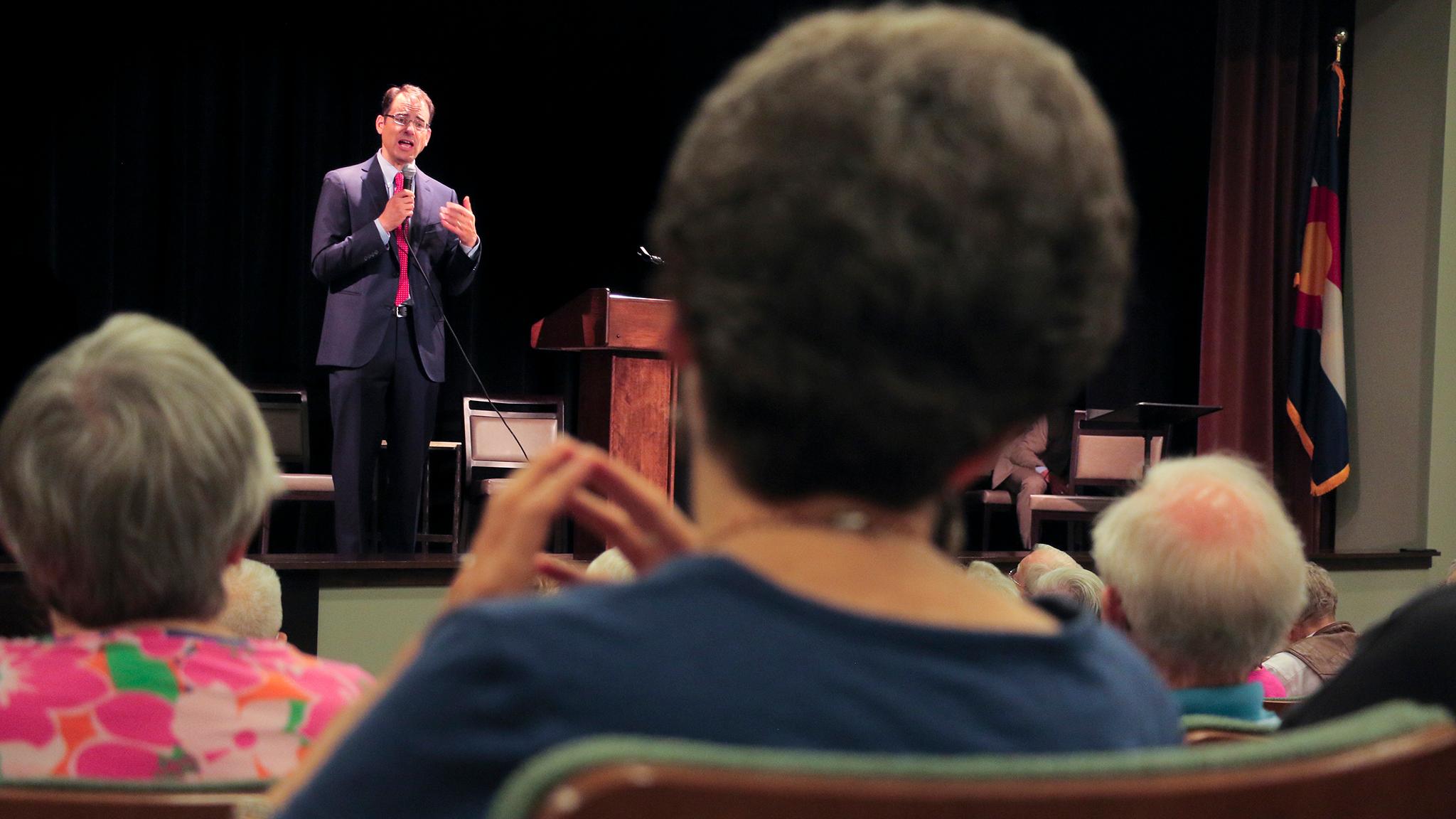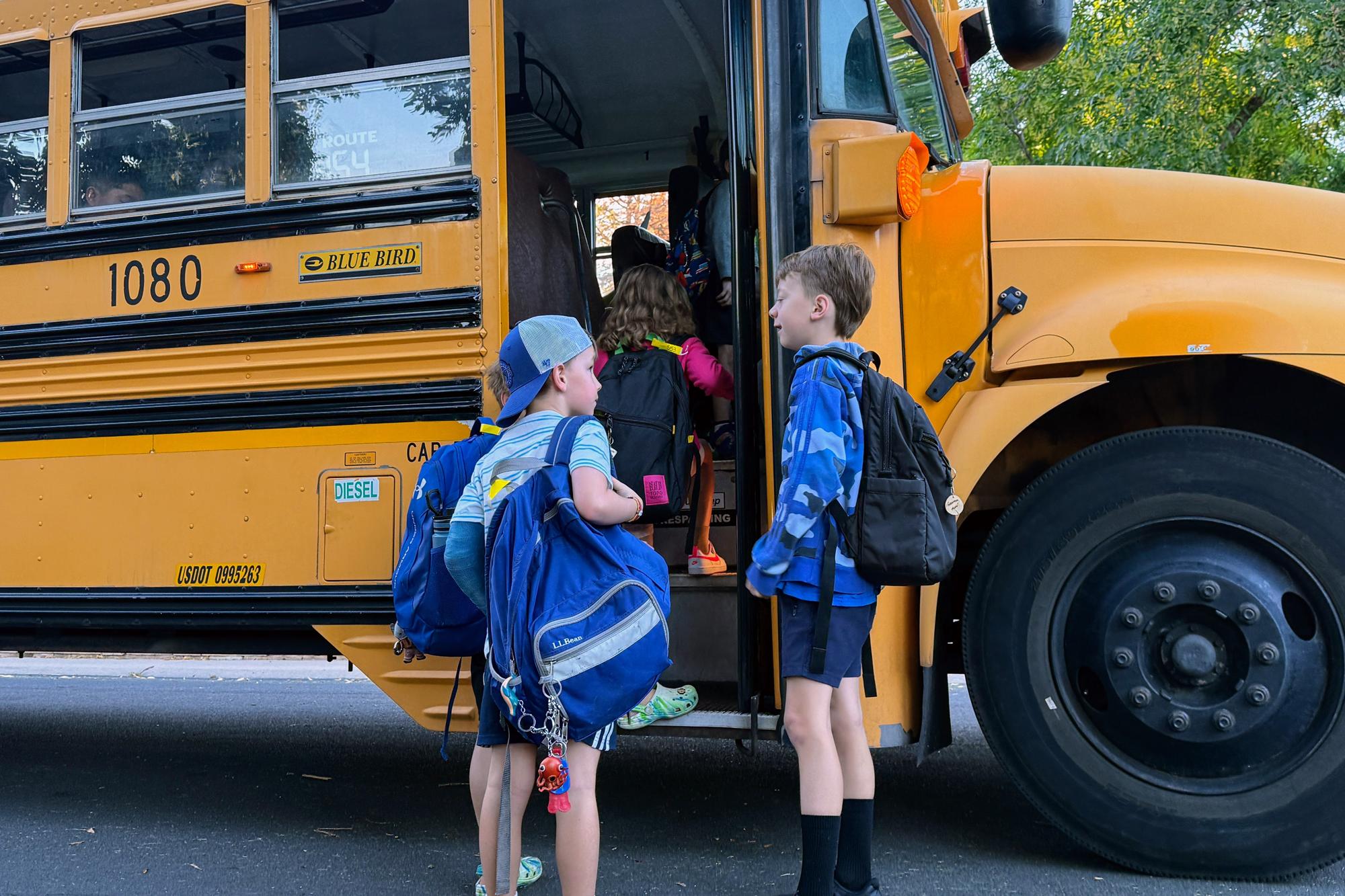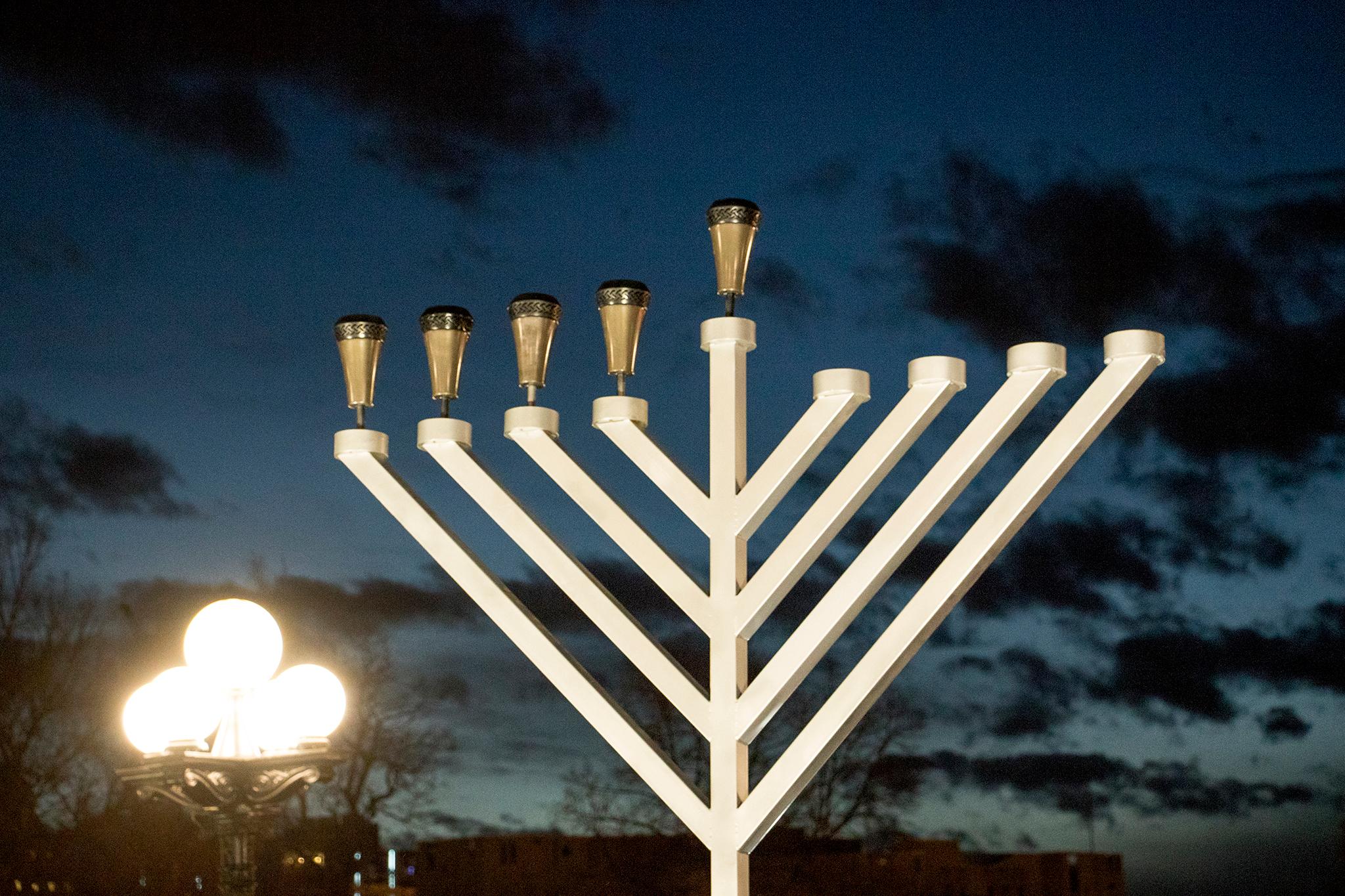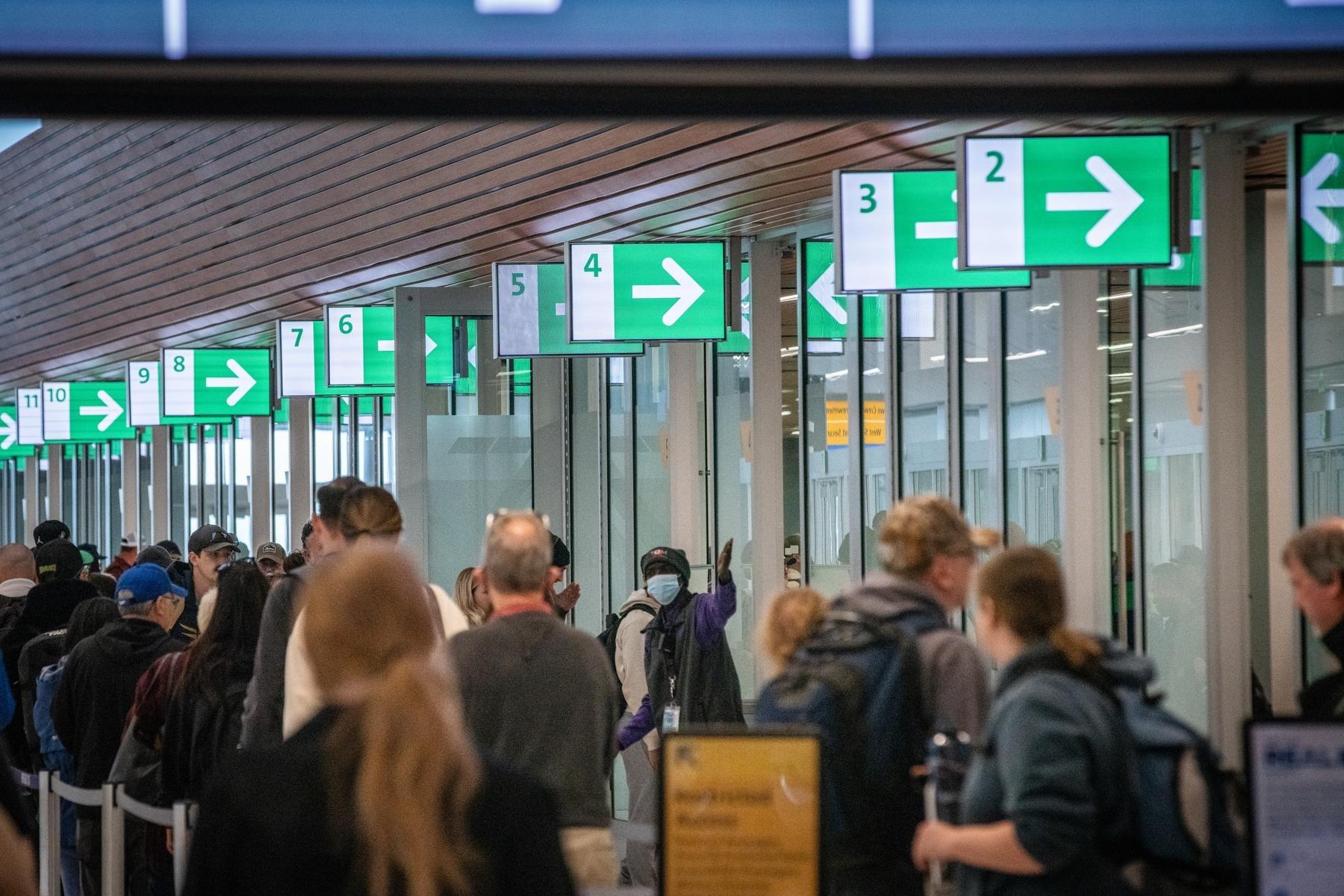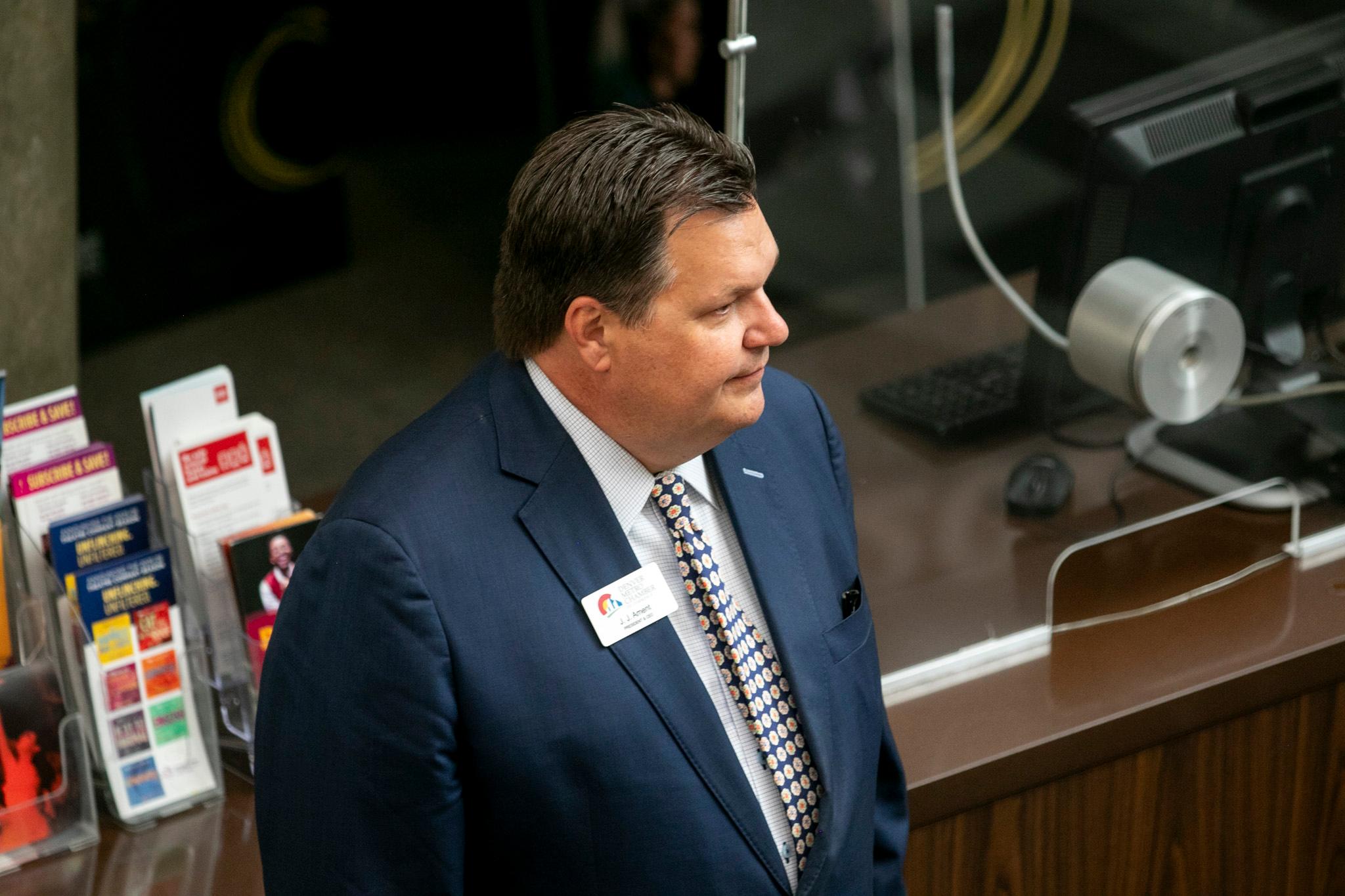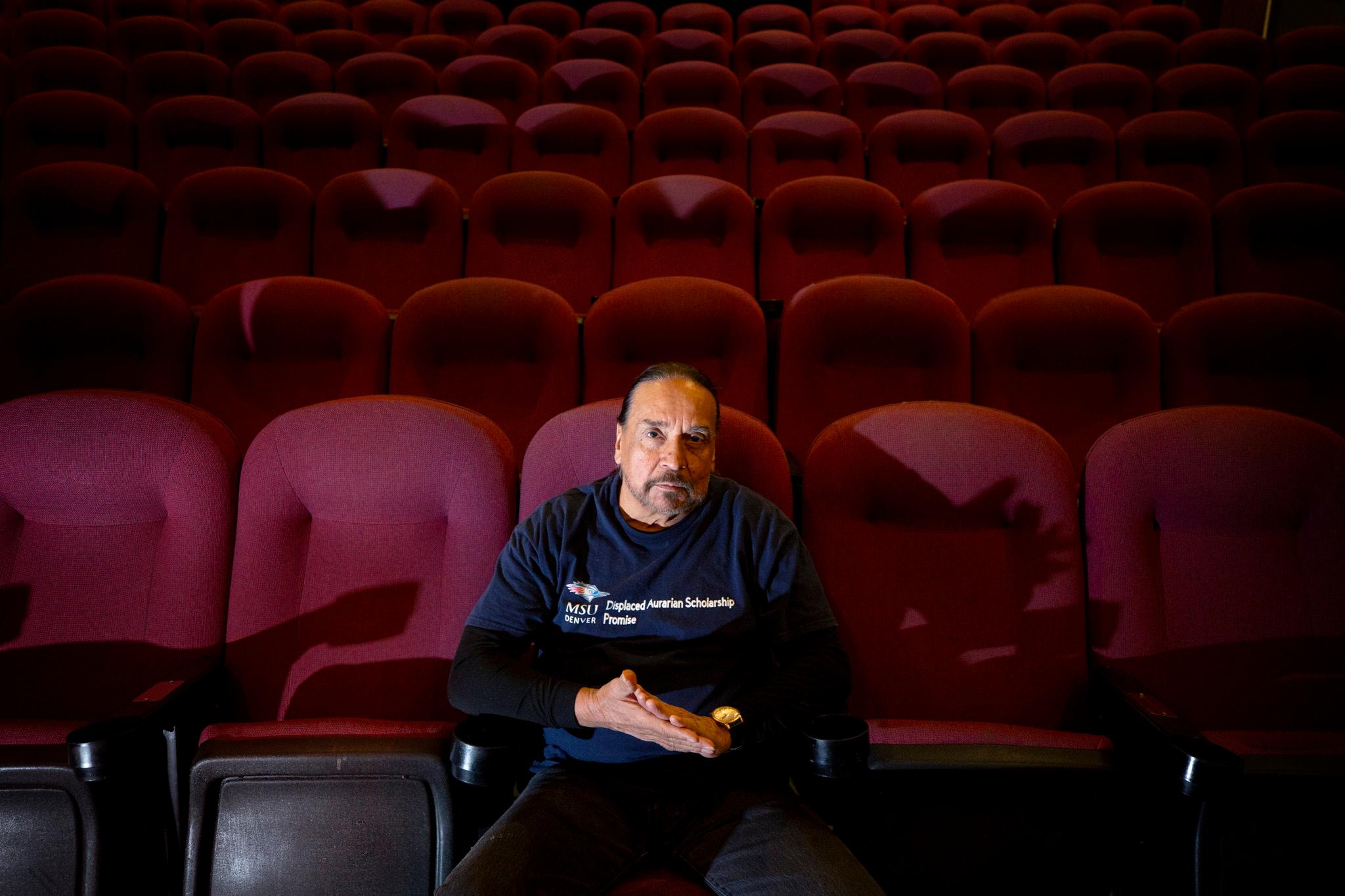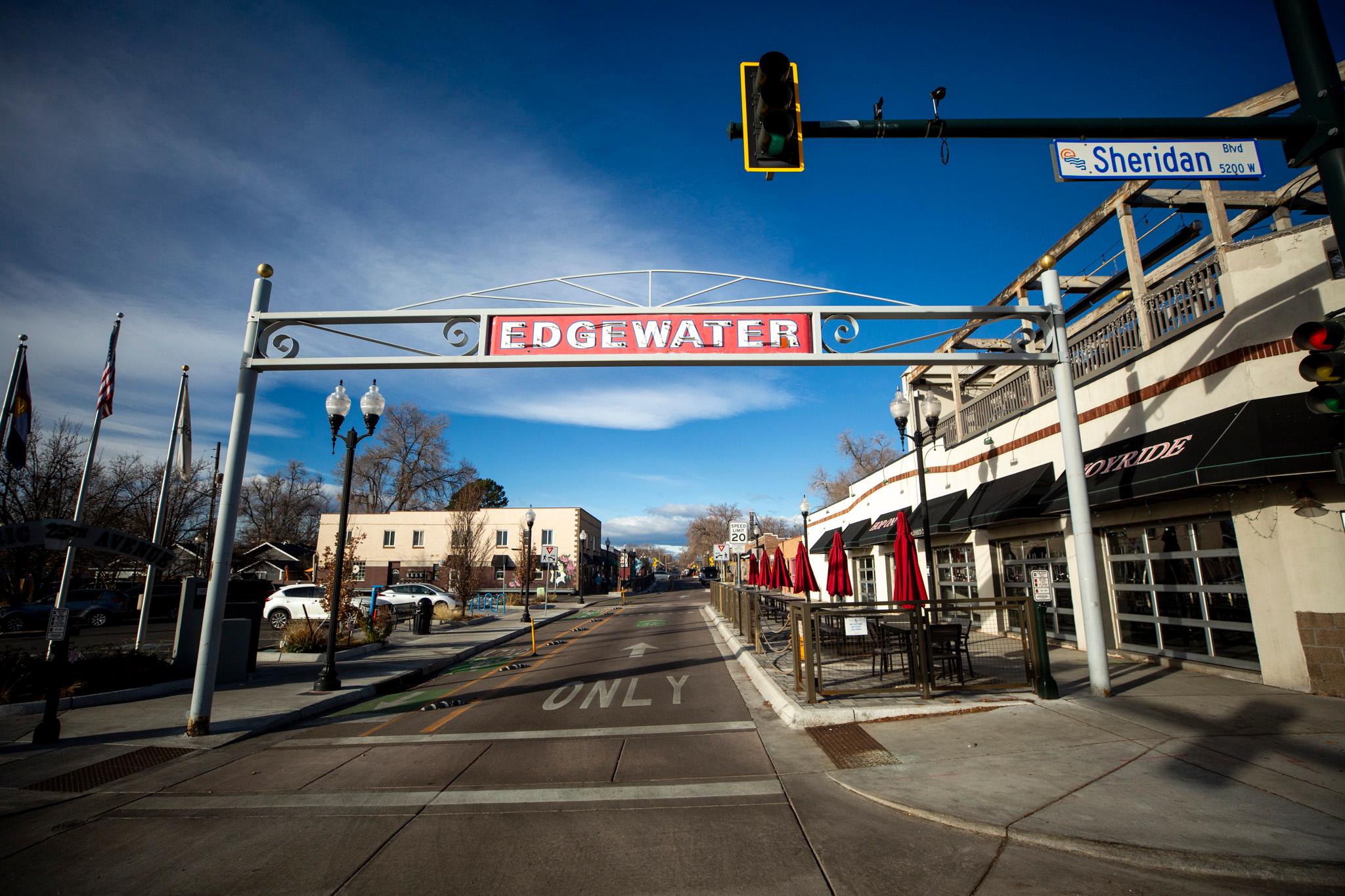The fight between Colorado’s two attorney general candidates isn’t much of a fight at all. Figuratively speaking, the race between Republican George Brauchler and Democrat Phil Weiser is more sparring than outright brawling.
At least, that was the case on Tuesday in Highlands Ranch, when the two participated in a mostly cordial forum at the Windcrest Retirement Community. There were no verbal attacks or finger-pointing — though there was some mild criticism from Brauchler about Weiser's out-of-state contributions — and specific responses to some pretty great audience-submitted questions.
“I think they both did a fine job,” Windcrest resident and Democratic Alliance member Maggie Hoogerheide said after the forum ended. “I wish there had been more interaction between them. ... I think it’s going to be a hard choice for a lot of people.”
Kathleen Harrold, who also attended the event, said she's not sure who's earned her vote yet: "They had different opinions on sanctuary cities, so that’s interesting."
Anyone who attended likely learned quite a bit about candidates during the roughly one-hour forum.
The two men vying to be the state’s top law enforcement officer managed to highlight their differences on several topics while showcasing stage presence fit for a courtroom. They discussed proposed setbacks, immigration and sanctuary cities, the state’s weed industry and gun violence.
The first question touched on Colorado Initiative 97, a proposal that would increase setback requirements for oil and gas drilling that would severely limit drilling opportunities in the state.
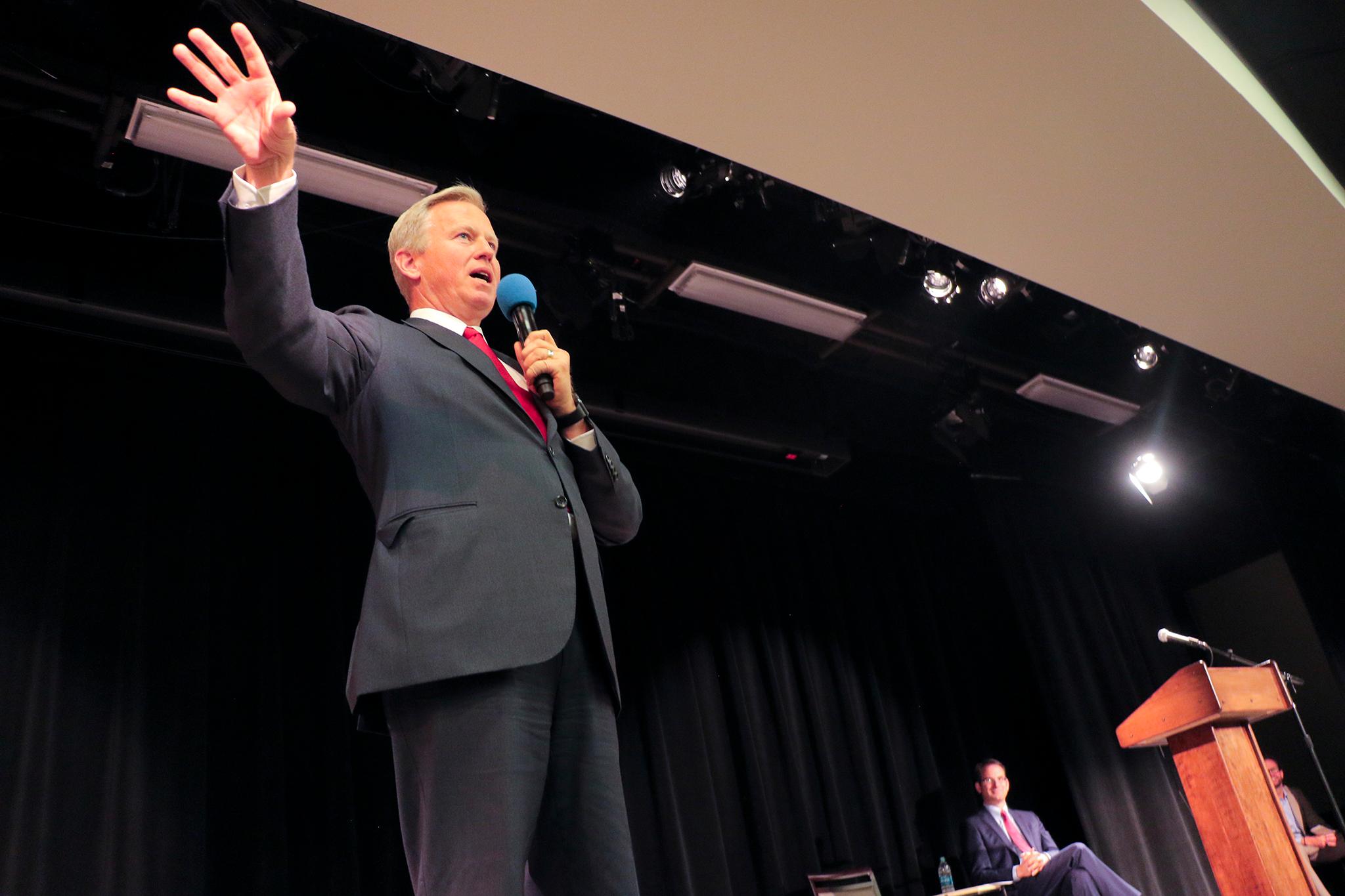
Brauchler, the current Arapahoe County district attorney and a Lakewood native, said the energy industry is a huge part of Colorado’s economy, with more than 200,000 people employed. He doesn’t seem to be a fan of the proposal, saying it’s “not in the best interest of Coloradans and that the regulations could potentially wipe out the economies in Western Slope communities. He also said he would still defend it if it's passed.
“If you’ve seen a map, you get it,” Brauchler said. “If we have these particular 2,500-foot setbacks as a result of this initiative, oil and gas will disappear almost overnight from this state.”
By nature, Coloradans are conservationists, Brauchler said, but there also needs to be space for energy development.
“There’s a Grand Canyon-worth of difference between conservationists from Colorado and an environmental elitist from somewhere else," he said.
Weiser, a New York native who’s currently a professor at the University of Colorado Law School, said parents have shared concerns about their children attending schools near oil and gas drilling sites.
“I want to make sure that my community and my kids are safe,” Weiser said, paraphrasing what he’s heard from parents. “We are using oil and gas, it’s part of our economy. We get a lot of benefit in Colorado and we also need to make sure people can trust that the public health safety and the environment is protected.”
Weiser called out current Attorney General Cynthia Coffman for her lawsuit against Boulder County over an oil and gas moratorium last year, calling it the wrong move when the county was trying to keep its residents safe.
But Weiser stopped short of fully backing the proposal.
“As for this initiative, I’ve got some concerns about how it would play out in practice and I understand where the concerns come from,” Weiser said. “We need an AG committed to protecting our land, air and water, and I’ll do that.”
Their views on sanctuary cities pretty much fall along party lines.
As the son of an immigrant born in a concentration camp in Europe, Weiser said immigration is personal for him. He put the topic in even broader terms, calling out President Trump’s policy of separating families at the border.
“They’ve taken kids away from their parents,” Weiser said. “Do you know why those kids are getting reunited? Because state AGs — not ours here in Colorado — but from other states, have said, ‘This is wrong. This is illegal. I’ll fight against it.’”
Locally, he said, people without proper documentation should still feel free to come forward as victims or witnesses to crimes.
“If somebody is afraid to testify because they believe the court will turn them over, the Department of Homeland Security, for them to be deported, they’re not going to testify, and we’re less safe, from rapists, from robbers,” Weiser said.
He cited Denver's unofficial sanctuary city status, adding that he will defend the city’s practice of generally refusing to turn people over to federal authorities.
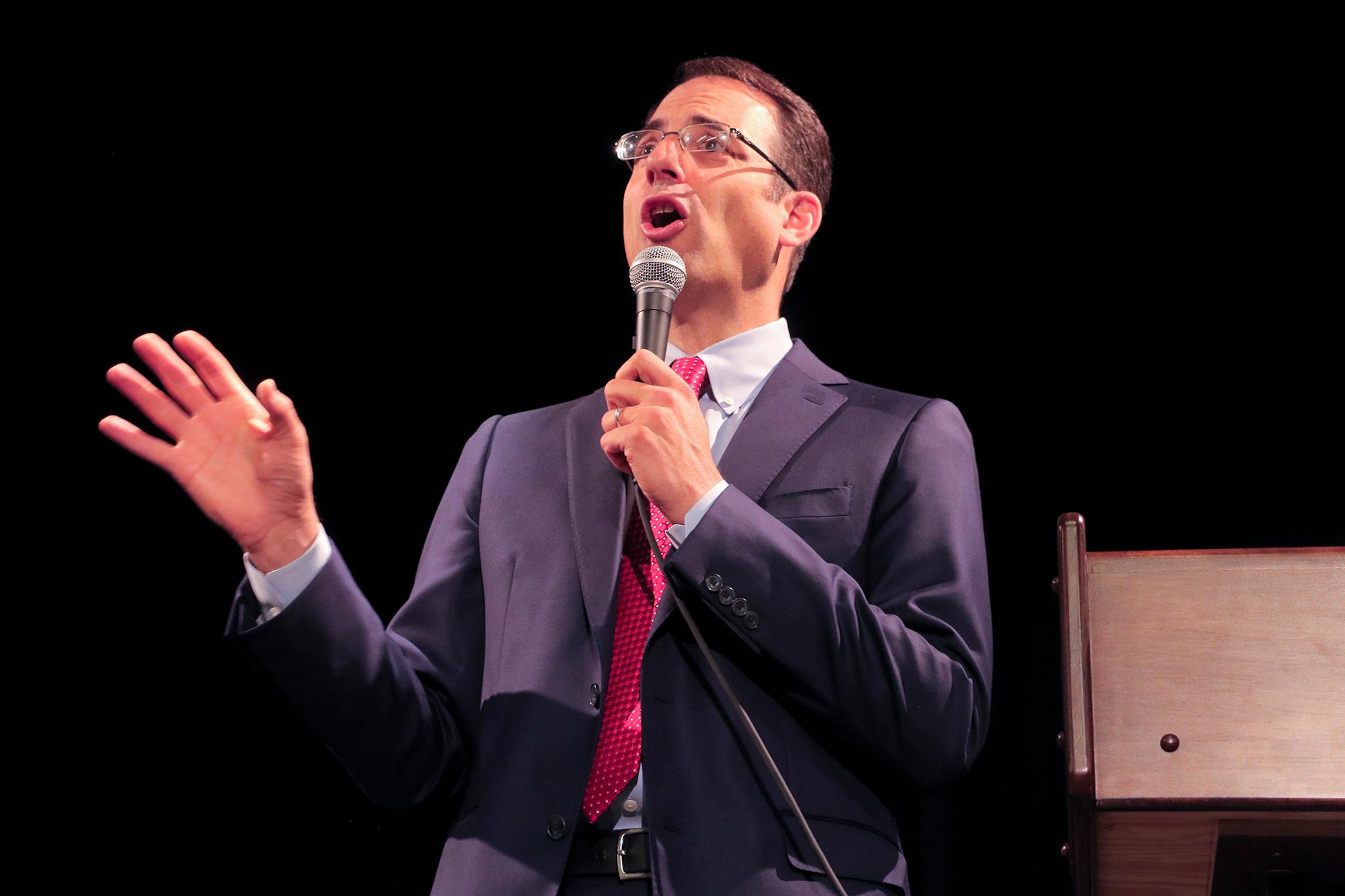
Brauchler said the question about sanctuary cities isn’t about the border or the wall Trump wants built. Laws can be enforced, amended or repealed, he said, there is no fourth option of ignoring or thwarting them.
“On matters of immigration, the federal government has exclusive jurisdiction. There is no state jurisdiction over immigration. … One thing that we cannot do is to encourage other cities to try and figure out a way to thwart the enforcement of that law,” he said.
He also said he doesn’t want law enforcement officers to “become arms of immigration or any other federal agencies.” He said undocumented immigrants who come to Denver don’t always stay there and can end up in surrounding counties.
“And as much as we want to think that every single one of them is just here to be hardworking, we know that’s not true,” Brauchler said before providing one example of a Mexican national who had previously been deported and who was convicted of rape in Aurora last year.
Does either candidate believe marijuana legalization has been good for Colorado? Well, kind of.
The question drew some laughter from the audience, with Brauchler taking a second before responding. He said he was opposed to Amendment 64, which added an amendment to the state constitution to allow the sale and use of marijuana. He said he would have would have liked it to have been a statute, to give it more flexibility.
“I didn’t want to be the first state out of the chute to try this experiment,” Brauchler said. “I was really hoping it would just be Washington state and we could watch them trip all over themselves and figure out how not to do what they did.”
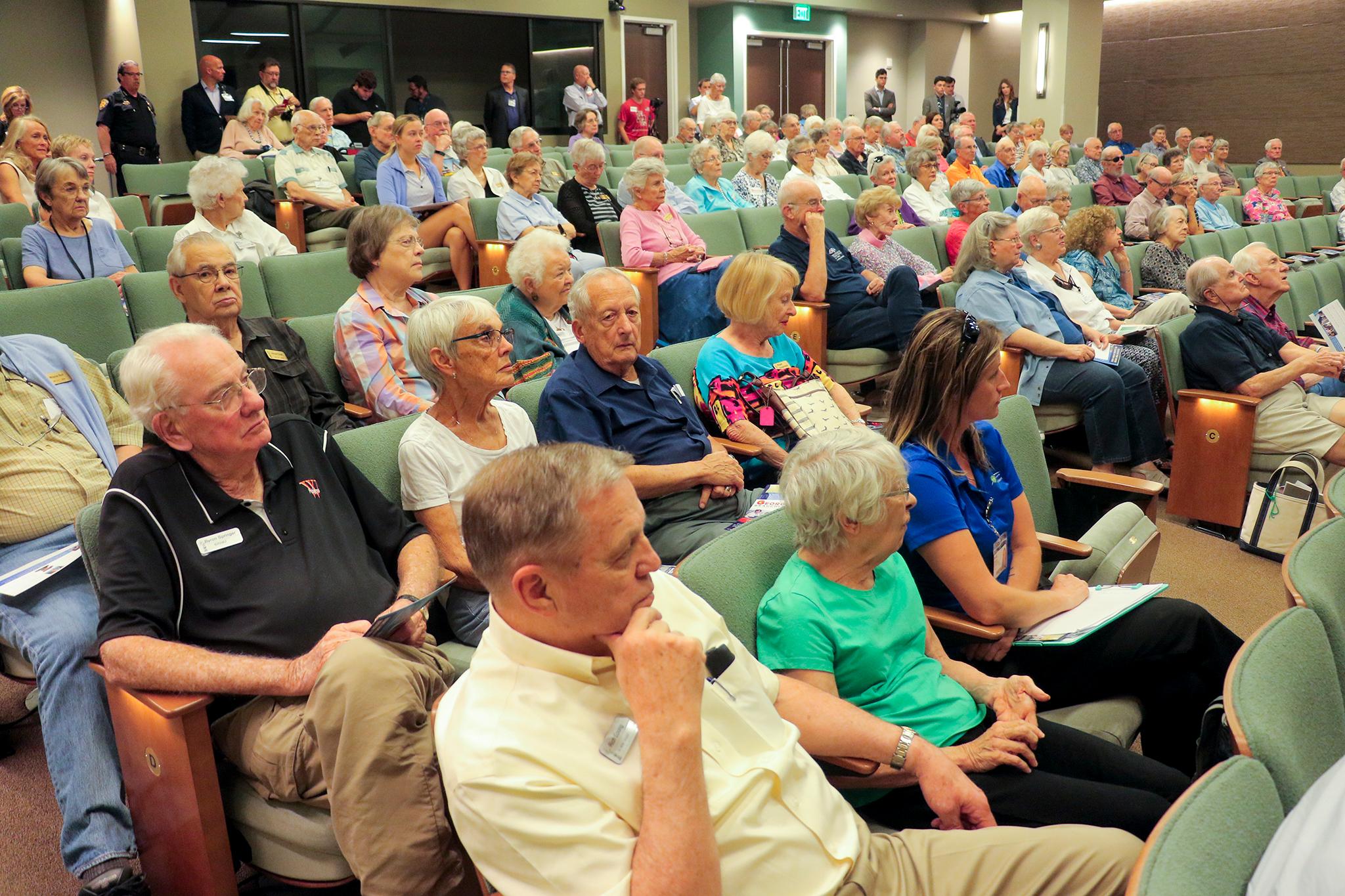
He pointed out that black market growing and trafficking remains an issue, and said there have been at least 11 first-degree murder cases related to illegal marijuana transactions in his jurisdiction since it the law was passed.
“Tax revenue, yeah, that’s great,” Brauchler said. “But if you think the crime went away, it has not.”
Weiser framed his answer in terms of criminal reform and tax revenue.
“We used to put people in jail who bought and sold marijuana. We don’t do that anymore,” Weiser said. “In Pueblo, they’re taking that tax money and they’re providing people with scholarships to college. In Eagle County, they’re using it to provide mental health services. And now it’s also a source of jobs and employment.”
Still, Weiser said, the attorney general's office will need to address some of the concerns Brauchler pointed out and effectively regulate weed to ensure it’s kept away from children.
“We are a national innovator, moving away from using our jails and prisons to put people who really don’t need to be there,” Weiser said. “And we’ve now taken a source of tax revenue and we’re doing great things with it.”
He added that there are lessons to be learned from this process that could be applied to addressing the opioid epidemic.
A question about mass shootings showed there's one proposed law they both support.
Brauchler dealt with mass shootings more than once. His first experience came after the Columbine High School shooting, when he helped prosecute the two men who sold a firearm to the shooters, and he later prosecuted the Aurora Theater shooter.
"I've had the opportunity to explore these shooters, I've had the opportunity to hold them accountable, I've had the opportunity to look at the laws that were in place and what could have been done better," Brauchler said.
He supports the so-called red flag bill, which he publically supported despite what he called the "political blowback" from his party.
"That's the kind of leadership I want to bring as attorney general," he said.
Weiser said there's a clear "moral urgency" on this issue. He said Colorado has passed "common-sense gun laws" requiring a background check.
"It's up to the attorney general to defend that protection against the NRA, who wants it to be declared unconstitutional," Weiser said. He also supports a red-flag law and banning bump stocks and other restrictions on "weapons of war."
"It's a crucial issue that I've heard about from kids time and time again," Weiser said later.

